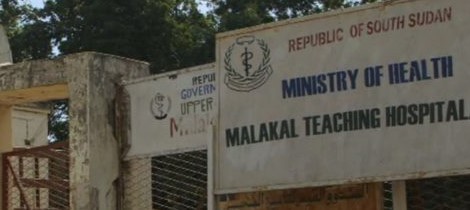The medical charity Médecins Sans Frontières (MSF) has called on all parties to the conflict in South Sudan’s Upper Nile state to respect and protect civilians, healthcare workers and medical facilities in accordance with international humanitarian law.
In a press release dated April 11, MSF quoted Zakaria Mwatia, head of mission in South Sudan, saying it was vital that medical facilities, patients and healthcare workers be protected and that access to medical care not be obstructed.
Mwatia said MSF remained deeply concerned about the ongoing violence in Upper Nile state, which has displaced thousands and made access to healthcare increasingly difficult.
Despite the violence and displacement, the press release said, many people — including women, children and the elderly — had remained in their villages and towns in Ulang and Malakal counties.
“In a context where functioning health facilities are already limited, the few remaining hospitals are a lifeline for people in the area,” it said.
The press release explained that as violence and displacement intensified, MSF teams continued to provide lifesaving medical services in some of the few remaining functional health facilities in Upper Nile. In particular, the agency was supporting hospitals in Ulang and Malakal, where teams were treating a growing number of patients with violence-related injuries, as well as cholera cases.
In addition, MSF teams were supporting several primary health care centers, including Doma, Mandeng, Kuich, Galachel, Baliet and Khorfulus, with cholera-related medical supplies and staff training to strengthen the response and improve access to care in affected areas.
MSF disclosed that the cholera outbreak, combined with insecurity and limited access to water and sanitation, was placing communities at even greater risk.
“Since February, more than 430 cholera patients have been treated at Ulang hospital alone, which remains the only functioning health facility in the area. Furthermore, in recent weeks, MSF teams in Ulang and Malakal have provided care to more than 230 patients, including women and children, for violence-related injuries,” it continued.
According to the medical agency, more than 200 patients, including women and children, were currently under treatment in Malakal and Ulang hospitals. In just the past two weeks, medical teams had provided 240 outpatient consultations, 97 antenatal care visits, 47 emergency room consultations and assisted with 30 deliveries.
The cholera outbreak was reportedly spreading rapidly, putting even more lives at risk and deepening an already dire humanitarian crisis.
“With cholera spreading and violence continuing, the need for medical care in Upper Nile state has become more critical than before,” Mwatia emphasized.
Beyond Ulang and Malakal, MSF teams were also delivering medical services in Renk County in Upper Nile. Additionally, MSF was working in the Greater Pibor Administrative Area and across several locations in Jonglei state, including Akobo, continuing to support communities affected by cholera.




